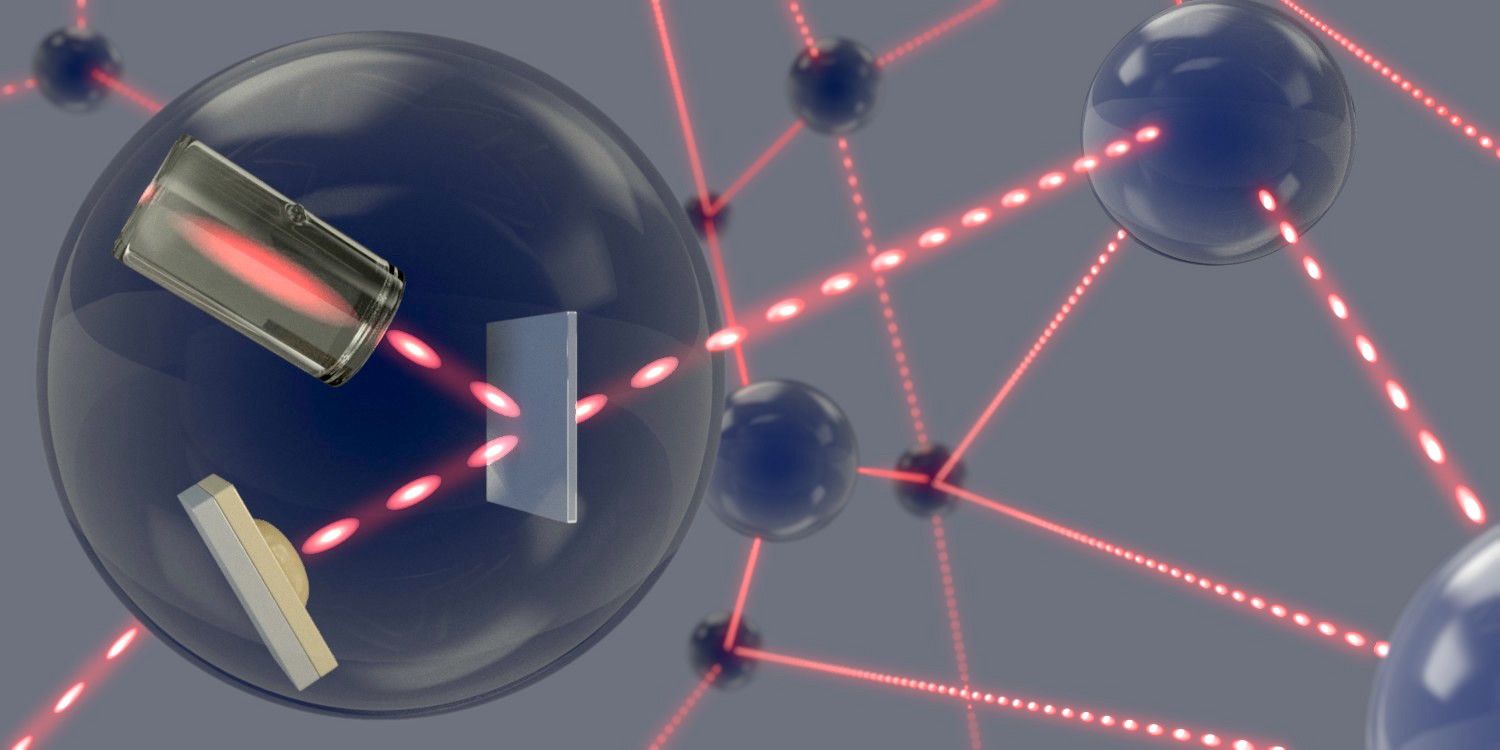Google & tesla send puerto rico hi-tech aid
Virgin Islands with everything from solar power grids to Wi-Fi balloons.
Google & tesla send puerto rico hi-tech aid
Virgin Islands with everything from solar power grids to Wi-Fi balloons.

Last year, we reported that Microsoft and Facebook were teaming up to build a massive undersea cable that would cross the Atlantic, connecting Virginia Beach to the northern city of Bilbao in Spain. Last week, Microsoft announced that the cable, called Marea, is complete.
Marea, which means “tide” in Spanish, lies over 17,000 feet below the Atlantic Ocean’s surface and is around 4,000 miles long. It weighs 10.25 million pounds. The data rates (which let’s face it, that’s what we’re all really interested in) are equally staggering: Marea can transmit at a rate of 160 terabits/second. And it was finished in less than two years.
What’s really interesting about Marea, though, is that it has an open design. This means that Microsoft and Facebook are trying to make the cable as future proof as possible. It can evolve as technology changes and demands increase for more data and higher speeds. Its flexibility means that upgrading the cable and its equipment to be compatible with newer technology will be easier.

I did a new interview on #transhumanism for some journalism students at Germany’s Technical University of Dortmund. It’s in English:
Mechanical bodyparts are very common nowadays – a lot of humans have a hip replacement or a pacemaker. Technology helps saving our lives rather often. Some people want to take this a lot further – a philosophical and scientific movement called Transhumanism. Zoltan Istvan Gyurko is one of the most famous Transhumanists, he even ran for president in 2016. In this interview, he talks about his first experiences with Transhumanism, immortality and the future of humanity.
By Marie-Louise Timcke und Paul Klur
Why is Transhumanism important for our society nowadays?
Zoltan Istvan: Well, Transhumanism is perhaps the most important subject matter that we have actually existing in society at the moment. Because humankind has been moving forward very slowly developing science and technology. But in ways that haven’t really rudimentary changed the human being. But all of a sudden, since the invention of the microchip, humanity is changing dramatically because of data, because of the internet, because of computers, because of smartphones. And what we have seen is almost nothing compared to what we’re going to see over the next ten or twenty years. Transhumanism is the field that wants to use science and technology to modify the human being and realise this kind of digitization of the actual self. But most importantly, the next ten years are going to be completely disruptive to whatever we thought it meant to be human beings.

Researchers from Wits University have linked a brain directly to the internet. Data gathered from this project could help fuel the next steps in machine learning and brain-computer interfaces.
A team of researchers at Wits University in Johannesburg, South Africa have made a major breakthrough in the field of biomedical engineering. According to a release published on Medical Express, for the first time ever, researchers have devised a way of connecting the human brain to the internet in real time. It’s been dubbed the “Brainternet” project, and it essentially turns the brain “…into an Internet of Things (IoT) node on the World Wide Web.”
When one thinks of Mark Twain, one thinks of folksy wit, Huckleberry Finn, Tom Sawyer and the Mississippi River. Twain’s work immortalized the rapidly changing United States of the 1800s. But in his personal life, Twain often preferred the future to nostalgia, supporting women’s suffrage and civil rights, and frequently being contemptuous of what he considered to be the absurd and corrupt values of the past. He harbored a long running fascination with technology and new gadgets, and frequently invested in the latter — albeit with spotty success, at best. But Twain cemented his becoming an honorary futurist via his long friendship with inventor and Mad-scientist archetype Nikola Tesla.
NEWPORT BEACH, Calif., July 12, 2017 /PRNewswire/ — Strathspey Crown LLC, a lifestyle healthcare company focused in ophthalmology, medical aesthetic and elective technologies and procedures, today announced that the United States Patent and Trademark Office has issued U.S. Patent No. 9,662,199 covering an implantable intraocular lens with an optic (including accommodating, multifocal and phakic configurations), a camera and an LED display, and a communications module that wirelessly transmit and receive information from an external device (e.g. PDA).
Robert Edward Grant, Founder and Chairman of Strathspey Crown LLC commented, “Video cameras are now a standard feature of smart phone technology and wearable cameras have become popularized by companies like Google and Snap in recent years. This patent represents a significant step forward in the rapidly growing sector of human cyborg technology. The eye, as a transparent medium for light, is ideal for advanced and rechargeable implantables that enable video capture of all of life’s experiences. Our broader vision is to develop ground-breaking medical-grade ocular smart implantables that integrate cellular, WIFI and 802.11 transmissions in an elegant cognitive interface that we believe will enhance human intelligence, augment perceived reality, and digitally capture experiences and individual memories. We look forward to several continuations and expansions on this important intellectual property portfolio.”
Grant further commented, “Although Samsung, Sony and Google have all recently filed patent applications related to the same field, Strathspey Crown is thus far the only company to hold an issued patent in this promising ocular smart implant category. Our first camera-integrated acrylic IOLs will be completed in 2018, upon which we plan to pursue an FDA Investigational Device Exemption (IDE) and subsequent Pre-Market Approval (PMA) and related clinical trial.”

For the unwary, ICOs represent an even bigger risk, as uncertainty about how they should be regulated means most lack even basic protection of securities laws that governed the dotcom IPOs. As pure digital events, the online fundraisings are also exposed to familiar internet frauds, from phishing scams used to rip off the unwary to the hacking of the underlying software underpinning the new ventures — the fate that befell the first prominent ICO last year, for a company called the DAO.
Flood of initial coin offerings is aimed at bypassing Google and Amazon, but sceptics fear a bubble.


Physicists from the University of Basel have developed a memory that can store photons. These quantum particles travel at the speed of light and are thus suitable for high-speed data transfer. The researchers were able to store them in an atomic vapor and read them out again later without altering their quantum mechanical properties too much. This memory technology is simple and fast and it could find application in a future quantum Internet. The journal Physical Review Letters has published the results.
Even today, fast data transfer in telecommunication networks employs short light pulses. Ultra broadband technology uses optical fiber links through which information can be transferred at the speed of light. At the receiver’s end, the transmitted information has to be stored quickly and without errors so that it can be processed further electronically on computers. To avoid transmission errors, each bit of information is encoded in relatively strong light pulses that each contain at least several hundreds of photons.
For several years, researchers all over the world have been working on operating such networks with single photons. Encoding one bit per photon is not only very efficient, but it also allows for a radically new form of information processing based on the laws of quantum physics. These laws allow a single photon to encode not only the states 0 or 1 of a classic bit, but also to encode a superposition of both states at the same time. Such quantum bits are the basis for quantum information processing that could make unconditionally secure communication and super fast quantum computers possible in the future. The ability to store and retrieve single photons from a quantum memory is a key element for these technologies, which is intensively investigated.